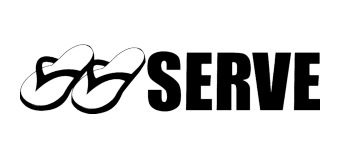Making Waves in Burkina Faso: A Voice for Justice and Human Rights
Radio is by far the dominant and most important mass medium in Africa. It outstrips both television and the press in reaching the most people on the continent. Local radio stations enable communities across Africa to voice their own concerns. On air, members of the public can discuss issues that they may relate to, like gender and combatting HIV and AIDS. It is also often used as a platform to share farming tips and income generating ideas, as well as providing a source of education.
Radio broadcasting is a powerful tool that can be used to enable communication to many isolated villages and towns in developing countries and thanks to funding support from Misean Cara, the Dublin Province of the Redemptorists and SERVE have been able to support a project managed by a Redemptorist priest Fr. Marek Marszalek in which 67 radio programmes were broadcast on Radio Taanba in Fada Ngourma, Burkina Faso. In a country where 75% of the population is illiterate, radio is widely used to spread information. For many communities, radio broadcasts are often the only effective way to disseminate important information to a large audience. The programmes contained valuable information relating to human rights and were broadcasted over the radio to approximately 250,000 listeners. The Coordinator of the Diocesan Commission for Justice and Peace instigated this creative initiative in an attempt to rebuild the trust between public institutions and the public, and to encourage social stability and public peace in Fada Ngourma.
For over a decade, the government of Burkina Faso has faced repeated social crises, sometimes marked by serious damage to life and to private and public property. It is widely recognised and accepted that the causes are due to social impunity, corruption, incivility, bad governance and poor economic policies. These social tribulations have created a deep divide, on the one hand mistrust between public institutions and the public, and secondly, between the population itself, bringing social stability and public peace into question.
The project made information relating to human rights accessible, irrespective of education and literacy through the transmission of radio programmes that were made available free of charge on Radio Taanba.
After training two language facilitators (French and Moore) in the basics of law, including constitutional law, human rights law and the rights of women, 67 radio programmes were produced. The programmes were transmitted free of charge. An interactive element was also incorporated into the transmissions with questions and answers sessions administered to the audience after a series of programmes on a certain topic. Core themes included: law, institutions of the state, criminal proceedings, women’s rights, and management of rural land disputes, all of which incorporated justice and human rights.
The success of the programmes is illustrated by the fact that they were listened to by approximately 250,000 listeners. With a population of 51,000 in Fada Ngourma, this means that the programme reached much further than just the city. They were all aired for a second time, hence 134 broadcasts took place in total. The programmes are now stored and ready for re – run.
Listeners of the programme have a deeper understanding on issues of civic rights and responsibilities. They are now more informed about the national law, government institutions, social services and access to public representatives. Women, a marginalized group in Burkina Faso are more informed of their rights and the support services available to them. A participative relationship has been established between radio broadcasters, The Commission for Justice and Peace and the legal profession.
Radio Taanba provided a platform for change for the communities in Fada Ngourma. Community members were actively engaged in the programmes in which they learned about justice and human rights. The results in Burkina Faso demonstrate the power of the radio programmes in providing compelling evidence that radio education can help people to recognise their rights and become more informed and empowered citizens.







